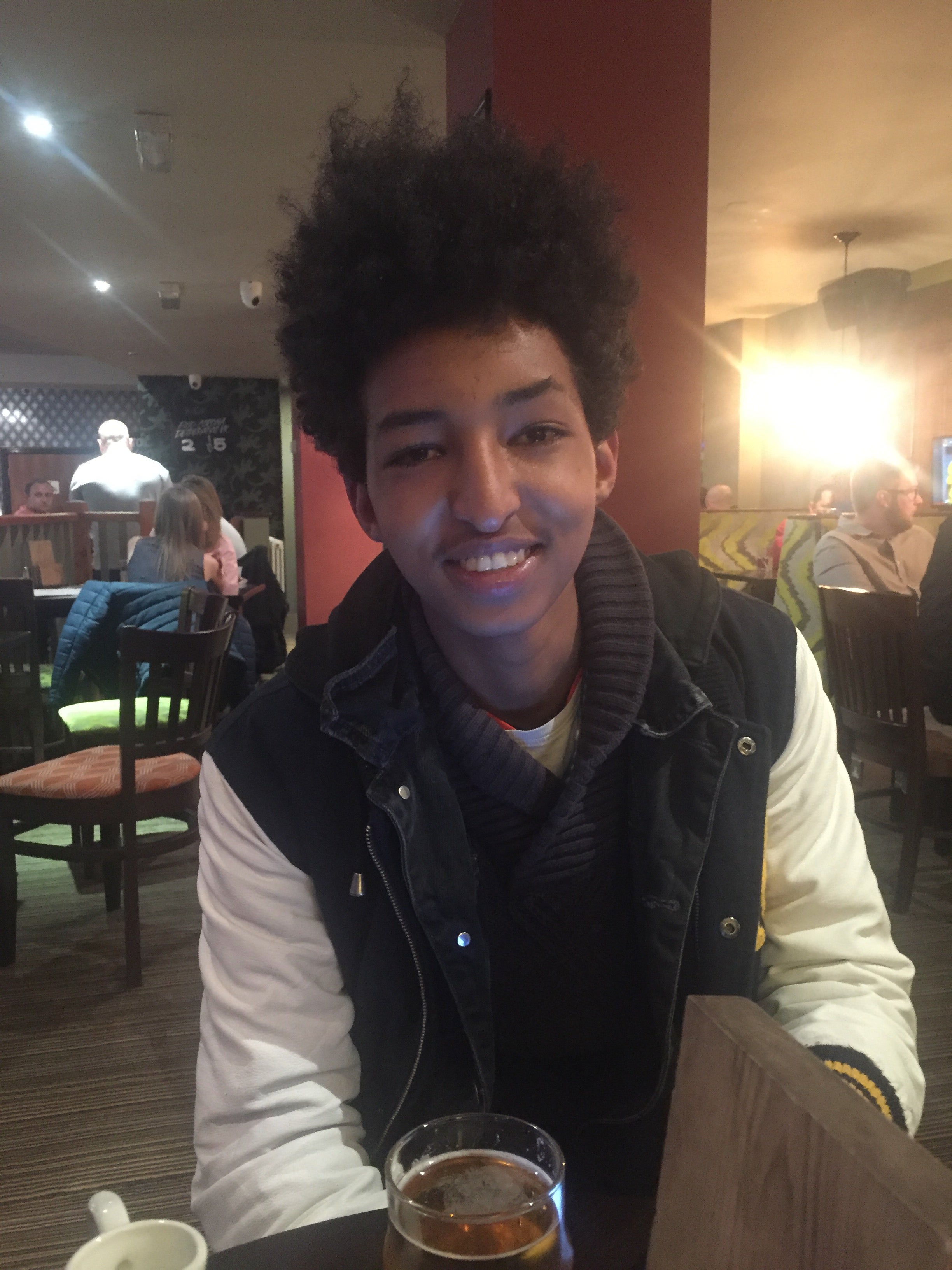Teenage refugee who took his own life was moved to adult accommodation despite age dispute, inquest hears
‘Lovable’ Eritrean national Alexander Tekle found dead in his accommodation a year after arriving in UK

A teenage refugee who took his own life in the UK had been moved to adult accommodation despite an ongoing dispute about his age, an inquest has heard.
Alexander Tekle, a “lovable” Eritrean national who arrived in Britain in a refrigerated lorry in December 2016, was found dead on 6 December 2017 in his shared local authority accommodation in Croydon, London, three months after he turned 18.
He is one of four young Eritrean asylum seekers from the same friendship group to take their own lives within a 16-month period after arriving in the UK.
The inquest heard that on arrival in Dover on 30 December 2016, Mr Tekle, who had spent time in the Calais Jungle, was placed into the care of Kent County Council’s children’s services.
He initially told the authorities on his arrival that his date of birth was March 1999, but later provided documentary evidence – sent by his relatives in Eritrea – showing that it was August 1999.
An age dispute case was launched by the council, but a decision was taken to move him into adult Home Office accommodation in March 2017 while the age dispute was ongoing.
Alex Stringer, Mr Tekle’s social worker at the time, who is now head of Kent’s unaccompanied asylum-seeking children’s service, said in evidence to the inquest that the council had the discretion to keep Mr Tekle in local authority care, but that his manager at the time decided not to.
The inquest heard that while in adult Home Office accommodation, Mr Tekle was violently assaulted, requiring hospital treatment, and that he subsequently absconded and became homeless, sofa-surfing with friends.
Benjamin Hunter, a friend and advocate of Mr Tekle, who met him while working for a child refugee charity in Calais, told the coroner that while the teenager had appeared to be “fine” during his first few months in the UK, his wellbeing started deteriorate from March 2017.
“I lost contact with him at the end of March. On 19 April, I got back in contact with him and I discovered that he was homeless [...] He was moving around with different friends,” he said.
“It was the first time I had concern for his emotional wellbeing […] He was very open with me in a way that he wasn’t with other people. He would cry on the phone and say he hated himself.”
Mr Tekle started drinking alcohol to cope with stress and trauma, according to Mr Hunter, who told the inquest: “Every time there would be a phone call, it would be at 3am and he would be drunk and crying.”
In May 2017, with the support of the Refugee Council, the teenager was moved in Corydon Council’s children’s services, where he was placed in foster care and later moved to independent living accommodation for care leavers.
By this stage, Mr Tekle had been homeless for some time and was addicted to alcohol and was often difficult to contact and disengaged, according to Mr Hunter.
During the last six months of his life, he is said to have been taken to hospital by ambulance on a further three occasions, including twice due to hypoglycaemia caused by alcohol intoxication and once after he was stabbed in the chest and suffered a punctured lung.
The inquest also heard that Mr Tekle was traumatised by the recent suicide of his friend, Filman Yemane, also an Eritrean asylum seeker, who took his own life just a few weeks before Mr Tekle’s self-inflicted death.
Another friend of the teenager told the inquest of the moment Mr Tekle found out Mr Yemane had died: “Alex was really upset and cried. He was confused and kept asking why. I think Filman’s death affected Alex quite a lot.”
Mr Tekle was found dead on the morning of 6 December by his housemate.
A statement by Mr Tekle’s father, read out during the inquest, described him as a “very lovable and social young man who had many friends” and as someone who “was always looking out for other people”.
Of his son’s time in the UK, his father, who joined the virtual inquest from Sudan, said: “[Alex] told me and his mum not to worry – that he would soon get his papers and find a job. He would send us money to help and support us. He told me he wanted us to rest and be at peace that everything will soon be better.
“When I think about Alex’s hopes for his life in the UK, and the knowledge that he’s gone, I feel deeply sad [...] Alex was a good person. I still don’t fully understand what happened to him while he was in the UK.”
Paying tribute to Mr Tekle, Sham Akiluli, a friend of the teenager, said in a statement read out to the inquest: “He was the nicest person that I have ever met. He had so much charisma.”
The inquest continues.
If you are experiencing feelings of distress and isolation, or are struggling to cope, the Samaritans offers support; you can speak to someone for free over the phone, in confidence, on 116 123 (UK and ROI), email jo@samaritans.org, or visit the Samaritans website to find details of your nearest branch
Subscribe to Independent Premium to bookmark this article
Want to bookmark your favourite articles and stories to read or reference later? Start your Independent Premium subscription today.

Join our commenting forum
Join thought-provoking conversations, follow other Independent readers and see their replies